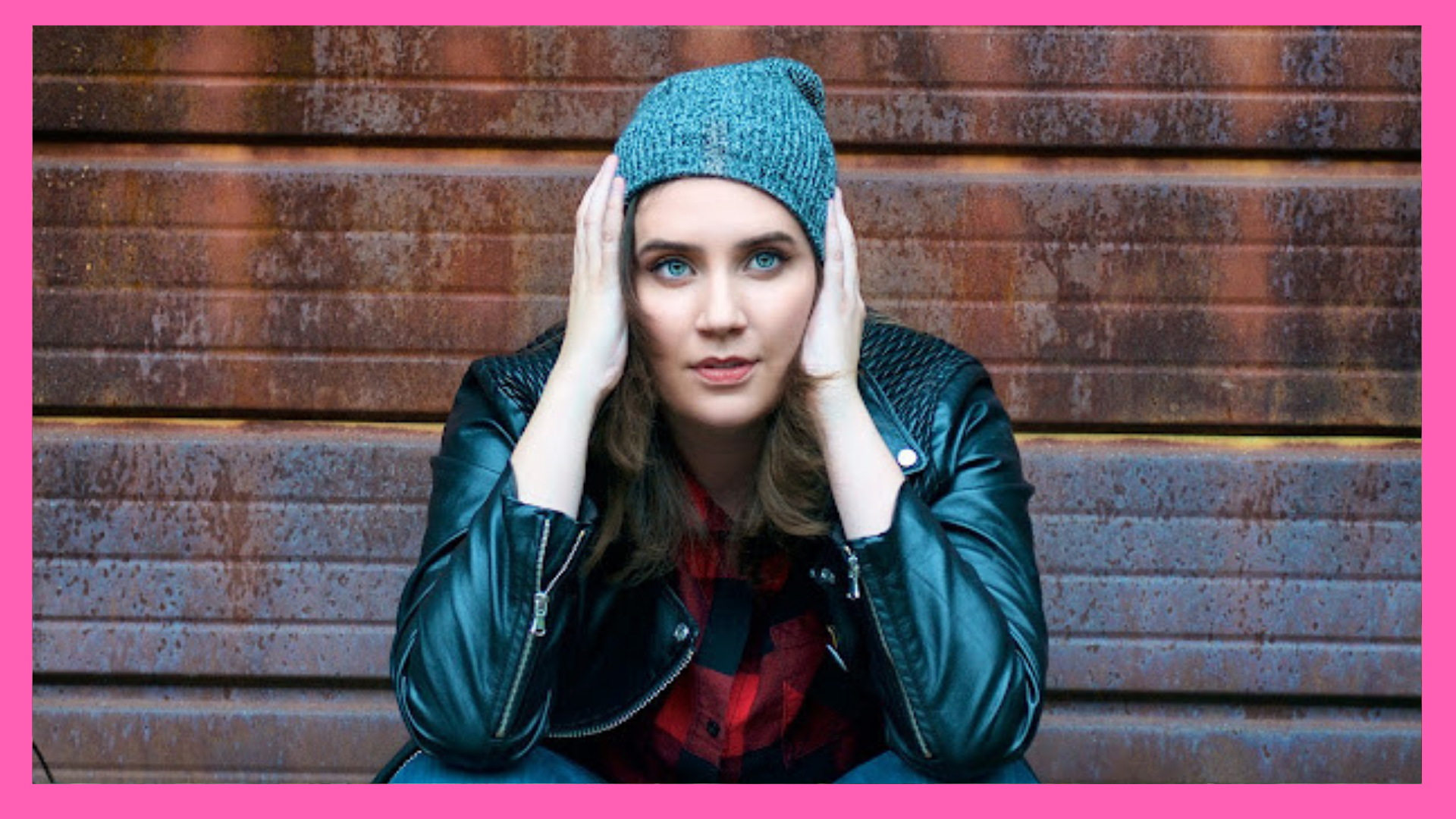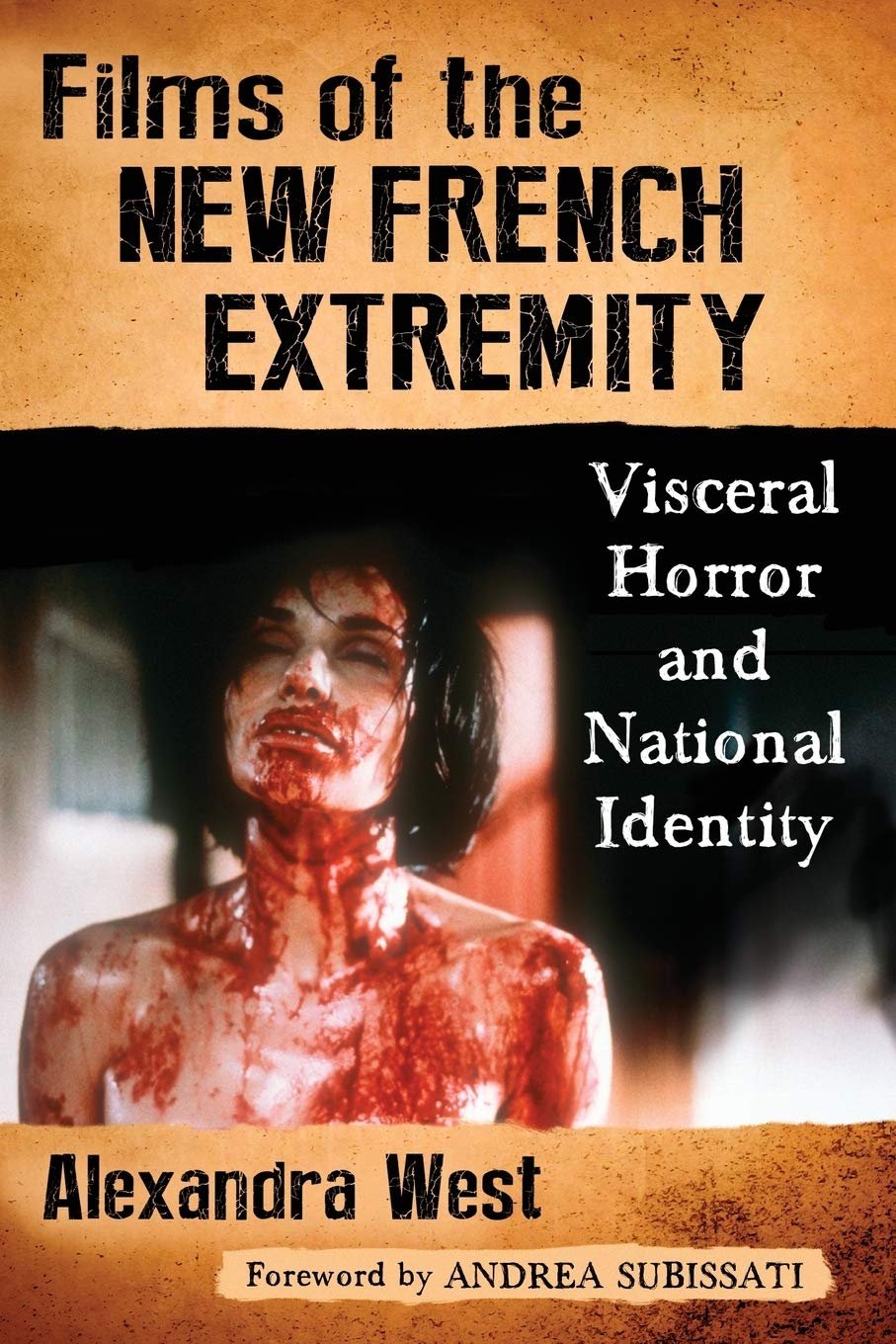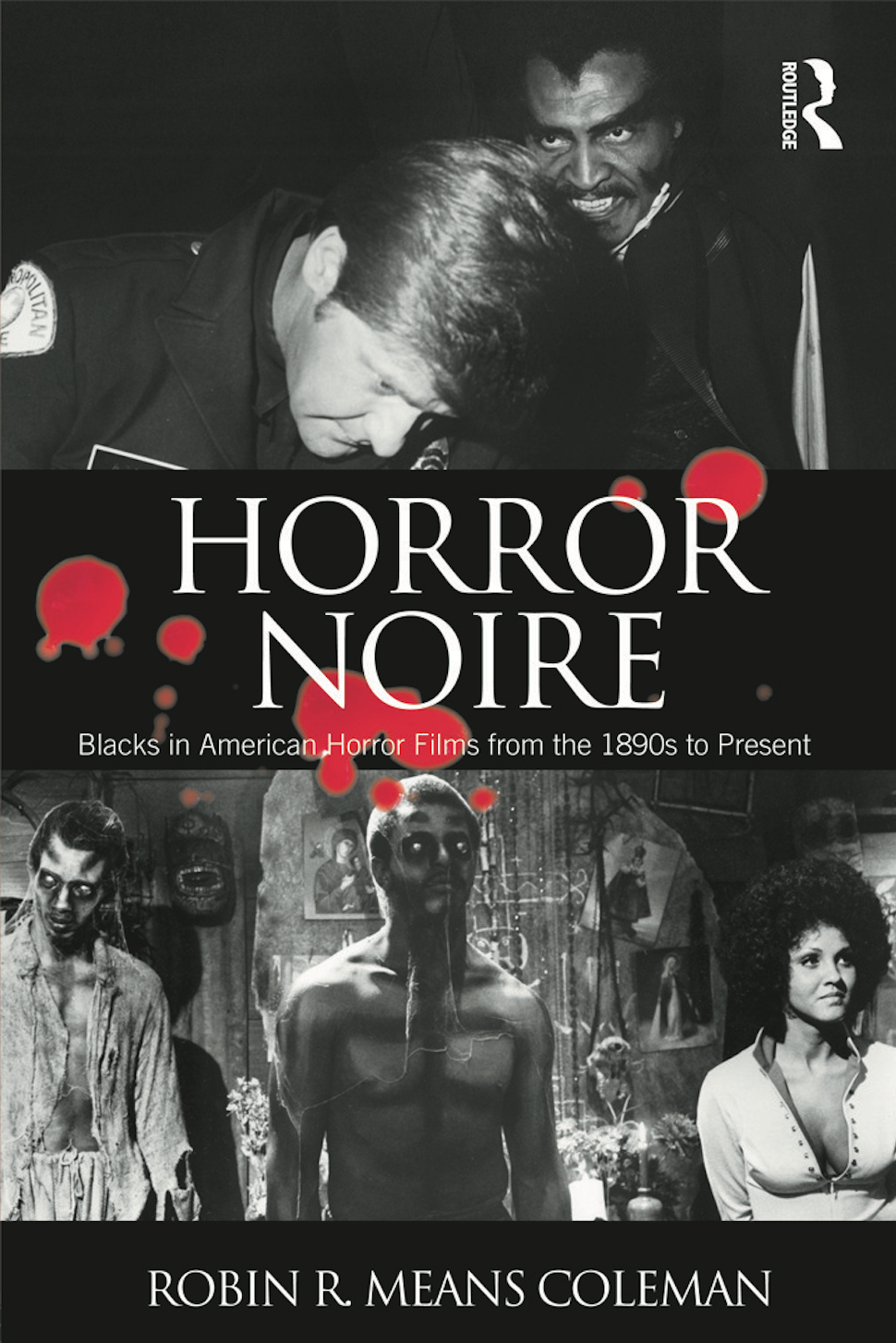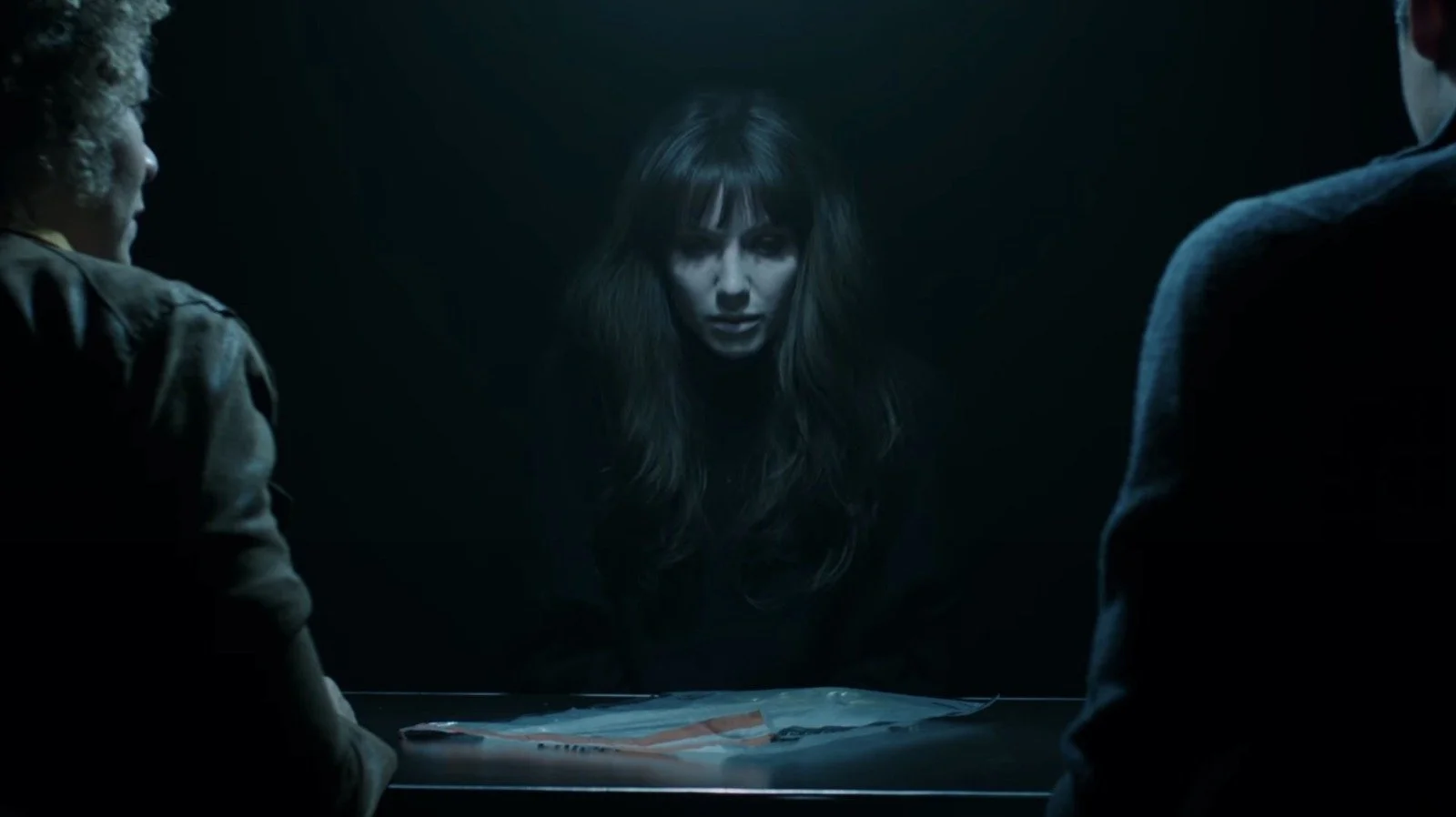[Editorial] Hearts of Darkness: A Love Letter to… Interview with Alex West
Back in 2019, I was just on the edge of becoming a horror writer and I found myself thinking ever more deeply and introspectively about the genre. As a wobbly beginner, I had not yet found my voice nor the support of a wider community. Into my life came Faculty of Horror, a podcast that made all the enthusiasm I had bubbling away under the surface explode with a joyful bang! It was nourishing, it was inquisitive and…it was hosted by two women! I lived for each new episode, immersing myself in the content, extra credit, and as much independent research as I could handle.
Alex and Andrea thought like me, spoke like me, and shared in my passion for horror. The Faculty of Horror approach inspired me to be the writer I am today-through their confident, open, and intelligent discussion I realised that I too had something to offer and I have been buzzing with creativity ever since! It would be no exaggeration to affirm that I owe everything to Alex and Andrea, they showed me that I could, they lit a fire that encouraged me to take that initial leap into the unknown, in short-they gave me power.
In Alex I recognised a woman hungry for knowledge, thirsty for theory and a fellow horror enthusiast who took equal delight in peeling back the layers of horror as I did. For all these reasons and more, I have chosen to celebrate Alex through an interview about her thoughts and experiences as a woman in the horror community as part of our Hearts of Darkness Series.
Rebecca: February is Women in Horror Month; can you share a few of your female role models within the genre and tell us why or how they inspire you?
Alex: I don’t think I would have the writing and podcasting career I do now without Andrea Subissati. She and I created Faculty of Horror and have grown together and separately since its inception. She is truly a force of nature and has been such an important voice in the horror community. We have a deep friendship and partnership that now looking back on I realize how unique it is. I think Andrea is the only person I could work with as closely and collaboratively as I do and I’m so grateful to know her.
Ashlee Blackwell is another person who does it all and on multiple platforms. Graveyard Shift Sisters has been so important to the conversation around intersectional feminism in horror and she continues to contributed from teaching to producing.
Alison Lang is another dear friend. She writes and edits but will also show up and work and volunteer at festivals and events. She’s a community organizer in horror always looking for ways to be involved and help. She wrote Women with Guts which is part of the Rue Morgue Library and has recently published two zines Music Men Ruined for Me Vol 1 and 2, all essential reads about the state of culture and criticism.
Carolyn Mauricette is a fantastic writer who is making waves in the film industry with her work at the Blood in the Snow festival here in Toronto. She’s one of the people who is creating change and moving the needle on multiple fronts that’s so exciting to see. She also hosts a podcast with Ashlee Blackwell called Reely Melanated.
I don’t think any Women in Horror list is complete without Stacie Ponder. Her blog Final Girl was a gateway into the horror community for so many (including myself!). She combines humour, film knowledge and incisive analysis to create some of the most accessible film criticism out there. She’s also a columnist for Rue Morgue and co-host the essential podcast Gaylords of Darkness with Anthony Hudson.
Zoë Rose Smith has become in a friend in the last year. She’s another multifaceted talent who creates on multiple platforms and brings people together. She’s also really helped me get into horror fiction through her YouTube channel which was a piece of the puzzle that I always felt like I was missing. Her recommendations are off the beaten path but always worthwhile.
R: Since beginning your work in the horror community, do you feel that the landscape has improved for women and what more do you think could be done to make further advancements into the future?
A: It has, especially for white cis able-bodied women. We need to be conscious of making progress intersectional and available to as many people as possible. This means giving people opportunities, mentoring, platforming and working with communities who haven’t traditionally been welcomed into spaces to figure out what can be done to make them more inclusive. This can include everything from specific types of training (anti-racism) to accessibility issues in venues and more. I feel like as a community we’ve begun to “talk the talk” so to speak about inclusivity, but now we need to walk it.
R: As a freelance journalist, what is your process for knowing when you have landed on the right idea? Do ideas come to you organically or do you purposely set out with a certain theme or intention?
A: It’s usually been an organic process of having an idea or theory and then seeing if anything similar has been written or is out there. If there isn’t already something out there that speaks to that idea then I will go to publications and pitch it around. Rarely do I feel good about work I’ve done that hasn’t come about that way, it feels forced and awkward. And when I have an idea that has already been talked or written about, I happily consume it and don’t usually take the idea much further.
I’ve been very fortunate that in the last few years, most (if not all) of my freelance has come from people reaching to out to me. If I feel like the publication or a project is a fit, I’ll go back through notes and ideas to ensure it’s a good fit for me to participate in. When House of Leaves reached out to Andrea and I, they initially wanted us to collaborate on a chapter together. While we work incredibly well together, we weren’t interested in co-writing a chapter. We went back to them and said we could write separate chapters, which they were into, and I had long wanted to do something about the conservatism in the Conjuring films so I drafted that pitch and they accepted. That’s how my chapter on The Conjuring films in the House of Leaves book Scared Sacred came to be.
R: Looking back to the inception and birth of your podcast, what were you greatest apprehensions? Where these founded or unfounded and could you talk a little about how you handled them?
A: Back in 2012 when we started, my only apprehension was if Andrea would do it. She was the only person I wanted to work with and if she hadn’t been into the idea, Faculty of Horror wouldn’t exist.
You have to remember 2012 was pre-Serial. Most people didn’t even know what the hell a podcast was or how to listen to it. It was only around 2013/2014 that podcasts started to become more mainstream. There was no idea that Fack would become a “thing.” I certainly never imagined it would be the thing I was best known for. All I knew was, I wanted to work and be friends with Andrea. I didn’t know it at the time but she’s truly a go-getter. She wants to get involved and try things. Thankfully, it worked out for us and we figured out how to make and upload podcasts and started having fun doing it so we just kept going. December 2022 will mark 10 years of doing Faculty of Horror. I couldn’t have imagined we’d be here but I’m grateful we are.
R: Being a creative and having an online presence can be quite daunting and the unpredictable nature of social media makes it a complex world to navigate. How do you balance maintaining an online presence to share your work whilst also protecting yourself in the process?
A: I feel like my dependency on social media grew as my presence and career grew – so I’ve never really known a time where I sat back in it. I got Twitter to promote myself and the podcast and Instagram started very slowly for me as a bit of fun but since then it’s also become a promotional tool. As we started to get recognition for the podcast and individually for our work, it’s become a sort of muscle reflex to brace myself when opening an app and there are more notifications than expected. I rarely use social media for pleasure. I’ve found a few things like Reddit where I don’t use my name and curate my feed so it’s a more enjoyable pastime that has nothing to do with self-promotion.
I protect myself by doing my best, learning, evolving and being honest when I’ve messed up. For me, it’s about accountability. I have be accountable to myself, those close to me in my personal life and people who care about my work. It’s not always easy and I’ve had more than a few sleepless nights but I think it’s made me a better more and more considerate person.
You also start to recognize what’s actual criticism and what’s just shit-talking. What’s feedback that you need to take on because of blind-spots or just fucking up – which we all do! – and what are comments that aren’t useful or helpful? Name calling, complaining about progressive language, swearing at us gets an immediate block/mute button smash.
R: During my time as a writer, my experience overall, has been incredibly positive and uplifting. However, there is always the occasional person who wants to provoke you or beat you down, have you ever come under criticism or negativity? What advice would you have for women who are faced with responses of this kind who do not want to be disheartened from continuing?
A: I’m a big believer in block or mute. If the person on social media isn’t serving the conversation or your feed in general, it’s better to put them out of sight and out of mind. The thing to be careful of is criticism and feedback which can really fucking hurt to hear BUT ultimately educates you. Whether I’ve made a dumb joke or used the wrong term, I’m grateful to have had to the opportunity to learn from those mistakes and grow from them.
I think there’s a fear right now of making mistakes, getting criticism and losing what you have aka “being cancelled.” I don’t believe “cancelling people” truly exists as humanity is not a monolith. Most of the time, people are very willing to hear a: you know what? You’re right. I got it wrong and it was my mistake. I’m going to learn from this and incorporate what I’ve learned as I move forward.
And if they don’t accept that then you’ve lost some listeners/followers/what have you. I’ve seen some MASSIVE screw ups in the horror community in my time and most of those people are still around and working.
R: Through your writing, the podcast and the level of hard work, passion, and commitment, you have carved out an incredible space within the community. To those on the outside looking in-it appears as though you are living the dream! Have you ever, or do you still receive rejections? When this happens, what do you do to prevent this from denting your confidence as a creative to ensure that you pick yourself back up again and keep on going?
A: I don’t tend to get rejections now because I don’t tend to pitch. Again – I’m incredibly fortunate (and this is my living the dream scenario) that I’m approached to contribute to projects. But horror is not my full-time job, so I have to be very picky about what I work on as I only have so much time after I clock off. After that, Faculty of Horror is my priority and then any additional projects I take on.
But from there, rejection can happen at several stages – from pitching to rewrites to what you see as the final copy. And it can absolutely hurt to hear that idea won’t work or need to be reworked or have something axed in the final stages.
I find it good to remember that while writing can be solitary – content creation, whether it be writing, podcasting, making YouTube videos and beyond – is more of a team sport. If you’re writing, you need to trust your editor is helping you not hindering you. And if you ultimately don’t agree with the editor then maybe they’re not right for you. If it’s podcasting or on YouTube then you’ve got a co-host/guests/an editor/ sponsors to consider. Even if you’re creating content and publishing by yourself, you’ve still got your past, present and future self to contend with. Take everything as an opportunity and don’t take it too personally.
R: If you could only preserve one academic horror text for the rest of your days, what would it be and why?
A: Horror Noire: Blacks in American Horror Films from the 1890s to Present by Robin R. Means Coleman. It’s essential reading in my opinion. The writing is fantastic and very readable unlike a lot of academic text which are dry and jargon heavy making them inaccessible. It has added so much to the conversation and I would also highly recommend checking out the documentary on Shudder based on it.
R: What qualities do you feel are important in a site, publication, organization, or festival when you are looking to pitch an editorial/ lecture or other creative endeavour to?
A: Representation, inclusivity and accessibility. Does it have content that is representative of different lived experiences and communities? Are they doing work that helps bring a variety of communities in? Are the barriers to access low? Those the questions I ask myself and go from there.
R: As a female horror writer in the community, there have been times when it has been a struggle to have my voice heard or to be given opportunities, have you ever experienced any setback or obstacles in your horror career and if so, how did you manage them?
A: Initially I felt very unaccepted in the horror community here in Toronto and online. I was lucky enough to meet some great people online and in person that gave me a shot and definitely helped me learn some basics very quickly. From there I felt like I stalled but I still wanted to do more. That’s when Faculty of Horror was born. Andrea was also feeling a similar way that we’d kind of gotten to where we could on our own and in the then current state of play. We started a podcast in 2012 before Serial became a hit and before most people even knew what the fuck a podcast was. But we enjoyed doing it, had fun with it, pushed ourselves with and grew. Before we knew it, we were getting opportunities because of the podcast, because we created a space where people could find us.
Maintaining that platform and growing with it has allowed us a space we can call our own. But I should also say, I’ve been really realistic in my expectations. Horror is not my full time job it’s a passion and a side hustle. Because of that I’ve been able to say no to a lot of things and not had to take work just to take it.
R: I have found so many empowering women in the horror community and we all seem to share the same feeling of belonging and feeling supported. What is it about the horror community and horror in general that is so appealing and welcoming for women?
A: Horror as a genre is incredibly popular but always treated like an outsider, so I think a lot of outsiders are drawn to the genre and community and if you can find your group in this community then I think there’s a way in.
It also helps that the appetite for horror content is massive. Whether your part of a major horror brand or doing something completely independently – there’s almost a guaranteed audience if the work is good.
R: What is the most valuable piece of advice you have been given by another woman in the community?
A: Well, I was given a great piece of advice but it was from a man. I honestly use this advice at least once a week so I have to share it. Years ago I was chatting with my friend and Rue Morgue columnist Paul Corupe and was struggling with a piece I was writing at the time. I think I was saying that I felt like my writing was stalling every time I sat down to work on it. He said, always think of what you’re adding to the conversation.
It’s very simple advice but that’s what I needed. When I get stuck in writing or my notes for the podcast become haphazard I take a breath and think, what am I adding to the conversation? That grounds me and helps reorient me. I can get lost in my thoughts and that advice reminds me that what I write or say on a podcast is part of a larger conversation. What do I personally want to add to it that’s not already out there?
R: At Ghouls Magazine and in the community at a broader level, in the last few years it feels as though there has been a real boom in people discussing horror through the lens of mental health. What are your own thoughts about the healing power of horror and its ability to speak to the unspeakable for so many of us who have endured trauma?
A: I think it comes down to taboo and catharsis. The horror genre is wide when it comes to what it covers and it more often than not covers subjects and themes that mainstream entertainment won’t touch so there an element of visibility there and from there the catharsis of see those taboo subjects played through in a narrative can be empowering and healing.
R: If you could shout loud and champion one overlooked female in the genre, who would this be and why does she deserve more love?
A: Akela Cooper, the screenwriter of Malignant. I unexpectedly LOVED Malignant and I think Cooper’s script was the real MVP of that film. It nailed the tone, themes, characters and plotting that lent itself to a really unique film experience. I think James Wan as the director helped amplify it but the script spoke to his strengths while also taking him in some new directions that felt fresh and different. I can’t wait to see what she does next.
Alex West is a freelance journalist whose work has appeared in The Toronto Star, Rue Morgue, Famous Monsters of Filmland, and Shock Till You Drop. Her writing has also been published in The Supernatural Cinema of Guillermo del Toro: Critical Essays, Art of the Title and Offscreen Film Journal. She has lectured on theatre and film in Canada and the US. Her books Films of New French Extremity: Visceral Horror and National Identity (2016), and The 1990s Teen Horror Cycle: Final Girls and New Hollywood Formula (2018) are available via McFarland. You can find Alex’s work on her website or you can follow her over on Twitter and Instagram!








![[Editorial] In Her Eyes: Sara Lowes in Witchfinder General (1968)](https://images.squarespace-cdn.com/content/v1/5fe76a518d20536a3fbd7246/1655655953171-8K41IZ1LXSR2YMKD7DW6/hilary-heath.jpeg)
![[Editorial] The Babadook (2014)](https://images.squarespace-cdn.com/content/v1/5fe76a518d20536a3fbd7246/1651937631847-KR77SQHST1EJO2729G7A/Image+1.jpg)
![[Editorial] In Her Eyes: Helen Lyle in Candyman (1992)](https://images.squarespace-cdn.com/content/v1/5fe76a518d20536a3fbd7246/1649586854587-DSTKM28SSHB821NEY7AT/image1.jpg)
![[Editorial] Lorraine Warren’s Clairvoyant Gift](https://images.squarespace-cdn.com/content/v1/5fe76a518d20536a3fbd7246/1648576580495-0O40265VK7RN03R515UO/Image+1+%281%29.jpg)
![[Editorial] Sara in Creep 2 (2017)](https://images.squarespace-cdn.com/content/v1/5fe76a518d20536a3fbd7246/1646478850646-1LMY555QYGCM1GEXPZYM/27ebc013-d50a-4b5c-ad9c-8f8a9d07dc93.jpg)
![[Editorial] Sally Hardesty in The Texas Chainsaw Massacre (1974)](https://images.squarespace-cdn.com/content/v1/5fe76a518d20536a3fbd7246/1637247162929-519YCRBQL6LWXXAS8293/the-texas-chainsaw-final-girl-1626988801.jpeg)
![[Editorial] Margaret Robinson: Hammer’s Puppeteer](https://images.squarespace-cdn.com/content/v1/5fe76a518d20536a3fbd7246/1630075489815-33JJN9LSGGKSQ68IGJ9H/MV5BMjAxMDcwNDI2Nl5BMl5BanBnXkFtZTcwOTMxODgzMQ%40%40._V1_.jpg)
![[Editorial] Re-assessing The Exorcist: Religion, Abuse, and The Rise of the Feminist Mother.](https://images.squarespace-cdn.com/content/v1/5fe76a518d20536a3fbd7246/1629995626135-T5K61DZVA1WN50K8ULID/image2.jpg)
![[Editorial] Unravelling Mitzi Peirone’s Braid (2018)](https://images.squarespace-cdn.com/content/v1/5fe76a518d20536a3fbd7246/1628359114427-5V6LFNRNV6SD81PUDQJZ/4.jpg)
![[Editorial] American Psycho (2000)](https://images.squarespace-cdn.com/content/v1/5fe76a518d20536a3fbd7246/1627317891364-H9UTOP2DCGREDKOO7BYY/american-psycho-bale-1170x585.jpg)














![[Editorial] 10 Films & Events to Catch at Soho Horror Film Fest 2023](https://images.squarespace-cdn.com/content/v1/5fe76a518d20536a3fbd7246/1700819417135-299R7L4P0B676AD3RO1X/Screenshot+2023-11-24+at+09.41.52.png)
![[Editorial] 9 Horror Nintendo Switch Games To Play](https://images.squarespace-cdn.com/content/v1/5fe76a518d20536a3fbd7246/1697214470057-3XZXX8N4LYIMDFWS6Z3P/Screenshot+2023-10-13+at+17.20.13.png)
![[Mother of Fears] Mothering in Silence in A Quiet Place (2018)](https://images.squarespace-cdn.com/content/v1/5fe76a518d20536a3fbd7246/1696445921315-HZJ2DZYQIH6VVWXBO2YL/Screenshot+2023-10-04+at+19.52.29.png)
![[Editorial] 5 Female Focused Horror Book Recommendations](https://images.squarespace-cdn.com/content/v1/5fe76a518d20536a3fbd7246/1696441981361-52EQCTJ7AT2QF1927GM7/919xtm6d3fL._AC_UF894%2C1000_QL80_.jpg)
![[Editorial] 9 Best Slashers Released Within 10 Years of Scream (1996)](https://images.squarespace-cdn.com/content/v1/5fe76a518d20536a3fbd7246/1695478839037-LOFHGVM3H6BMSZW7G83M/Screenshot+2023-09-23+at+15.15.11.png)
![[Mother of Fears] Mother Vs. Monster in Silent Hill (2006)](https://images.squarespace-cdn.com/content/v1/5fe76a518d20536a3fbd7246/1695485781119-H6GNP0G3J2TLPAOIABV7/Screenshot+2023-09-23+at+17.11.56.png)
![[Editorial] 9 Terrifying Cerebral Visions in Horror Movies](https://images.squarespace-cdn.com/content/v1/5fe76a518d20536a3fbd7246/1693509801235-X23OL50T1DVGECH0ZJK2/MV5BMjQ0MTg2MjQ4MV5BMl5BanBnXkFtZTgwMTU3NDgxMTI%40._V1_.jpg)
![[Mother of Fears] I Don’t Wanna Be Buried in a Pet Sematary (1989) and (2019)](https://images.squarespace-cdn.com/content/v1/5fe76a518d20536a3fbd7246/1691328766069-QFNAVJOMFZVZ5CLU1RWM/Screenshot+2023-08-06+at+14.23.13.png)

Possessor is a slick futuristic thriller in which Tasya Vos, an assassin for hire, must manage her responsibilities as an elite killing machine and complex feelings towards her husband and son, whilst taking on another high-profile job that will push her to the edge of her sanity.